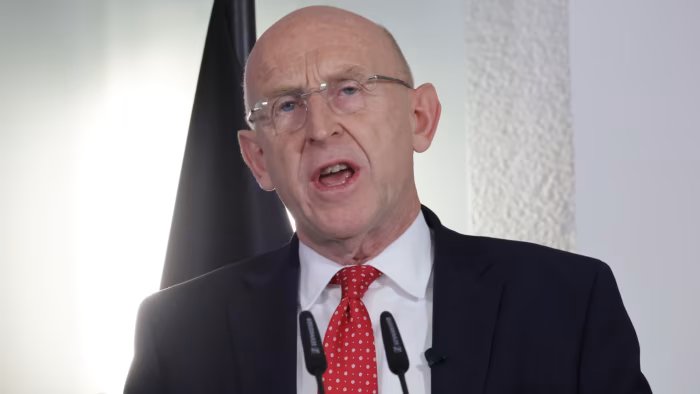Unlock the Editor’s Digest for free
Roula Khalaf, Editor of the FT, selects her favourite stories in this weekly newsletter.
UK defence secretary John Healey will insist there will be no return to the “hollowed out and underfunded” armed forces of recent decades, as concerns mount about the country’s military readiness.
Healey’s speech in Westminster on Wednesday will defend the government’s military spending priorities and comes on the same day as a defence select committee report which says the UK and its European Nato allies have “failed to invest in critical capabilities” and “remain over-reliant on the US”.
The parliamentary committee’s report adds that the UK’s defence industrial base “is not yet configured for sustained collective defence. It faces challenges in capacity, skills, innovation, procurement, and financing”.
Healey will respond to critics who argue that the Ministry of Defence is moving too slowly on military reforms. His speech will outline a new plan to build 13 defence “factories of the future” in Britain and will also unveil the opening of two new drone factories this week.
The MoD has funded a number of feasibility studies for new factories to kick-start high volumes of energetics production — such as explosives and propellants — “for the first time in nearly two decades”.
Healey will say the government is “making defence an engine for growth, unambiguously backing British jobs and British skills as we make the UK better ready to fight and better able to deter future conflicts”.
He will also argue that increased defence investment will yield a “defence dividend” which will stimulate growth.
But anxiety in UK defence circles is growing about whether ambitious priorities outlined in the strategic defence review, a military planning document published in May, will be forgotten amid the wrangling over government spending.
“The defence select committee has exposed the hollowness of Labour’s defence rhetoric,” said shadow defence secretary James Cartlidge. “Labour’s policy documents have all been published far later than promised and their strategic defence review won’t deliver until the 2030s.”
The SDR contained 62 recommendations by external reviewers, such as increasing investment in high tech weaponry and building a new fleet of attack submarines.
“The SDR and Defence Industrial Strategy outline a reform agenda, but implementation will be key,” said the committee’s report.
In the SDR, the MoD committed £1.5bn of additional defence investment for energetics and munitions manufacturing pipelines.

